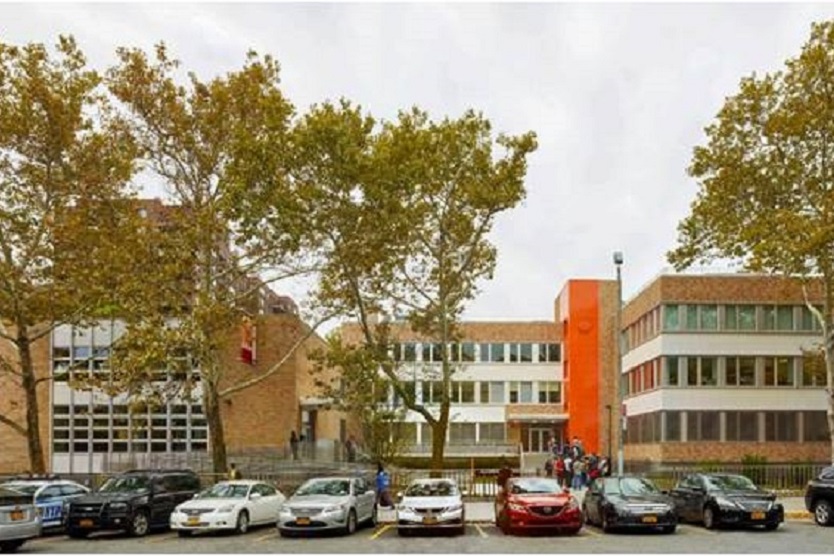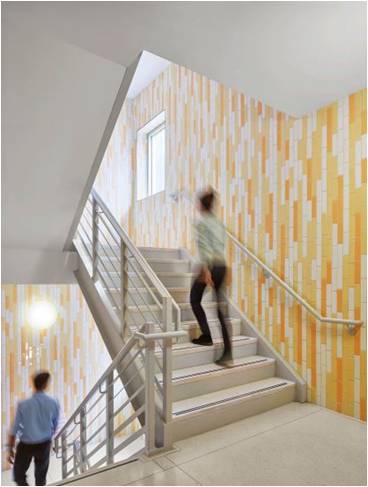
Riverside Health Center
© AHK USA - New York
A public facility managed by the New York City Department of Health and Mental Hygiene, Riverside Health Center supports the department’s mission of providing community-based health services.
Energy Efficiency Achieved
1100 Architect took an holistic approach to minimizing Riverside Health Center’s environmental footprint, considering energy consumption, water conservation, material selection, and healthy living. The Riverside Health Center uses over 50% recycled materials and sourced 45% from regional producers. Additionally, over 85% of construction waste was diverted from the landfill. To reduce the amount of water diverted to the sewer system in times of intense rainfall, a water retention system was installed as well as a green roof to further mitigate water runoff.
Learn more about the project in the brochure for the technology showcase.

Riverside Health Center
© AHK USA - New York
About the technology showcase "Energy Efficiency Award Challenge - German Innovation in U.S. Buildings"
The Award Challenge was created as part of the German Energy Solutions Initiative, sponsored by the German Ministry for Economic Affairs and Energy, to recognize the positive impact German businesses have in the U.S. building sector. It is designed to help German companies strengthen their position in the U.S market and make new connections within the U.S. sustainable building industry. The competition provided participating German companies with the chance to showcase their technologies and services that focus on increasing overall building performance across the U.S. The five finalists of this years’ challenge were: 1100 Architect, Arnold Glas, Kaeser Compressors, Meteoviva and Transsolar. These five presented themselves and their projects in front of the jury and audience. After careful consideration, two winners were selected: MeteoViva and Transsolar.
Current market trends suggest that building owners and managers will invest $960 billion between now and 2023 on “greening” their existing building infrastructures. In terms of growth throughout the sustainable building industry, the U.S. is still lagging behind Germany and other European countries that prioritize reducing CO2-emissions. The aforementioned trends towards a more sustainable and energy efficiency-focused method of building, coupled with the exemplary efforts to prioritize developments in this industry throughout Europe, have created increasing market opportunities in the U.S. for German companies in this field. The Award Challenge aimed at providing both applicants and attendees with the chance to learn more about energy efficient solutions from German manufacturers, as well as how they are being implemented in the U.S. building sector.


